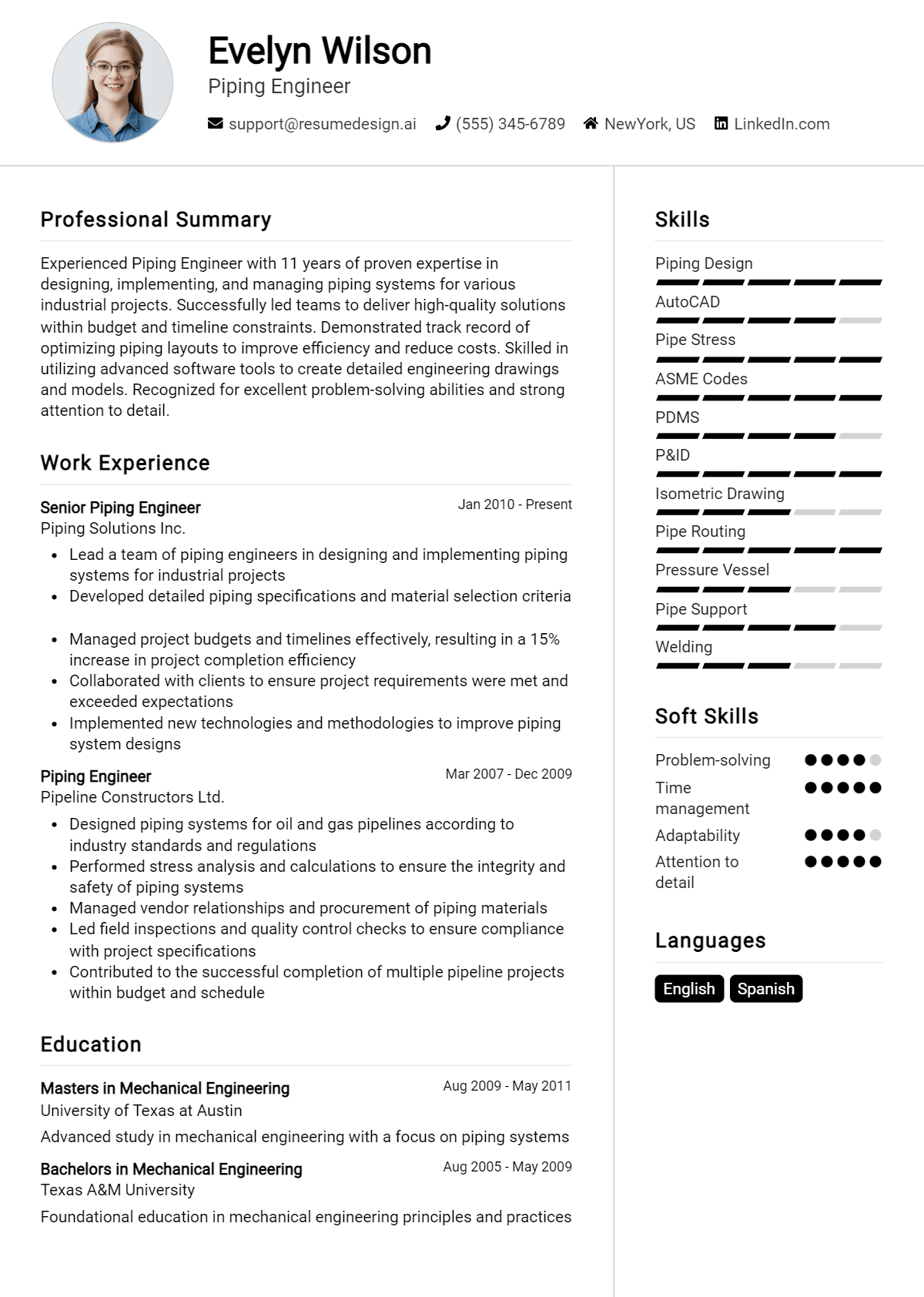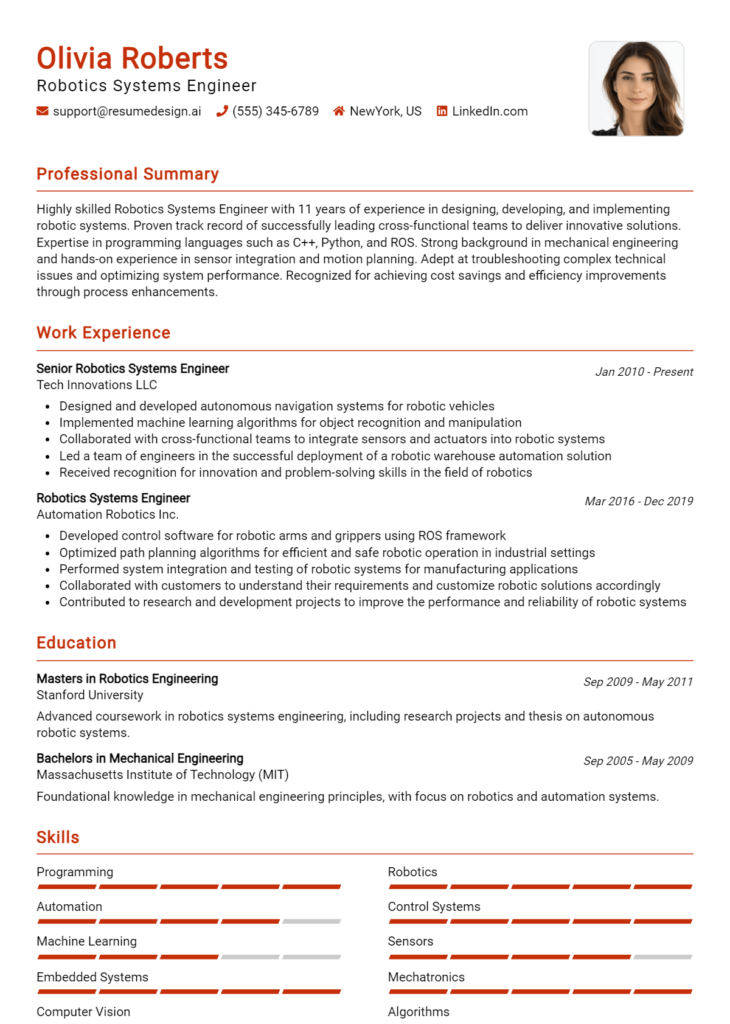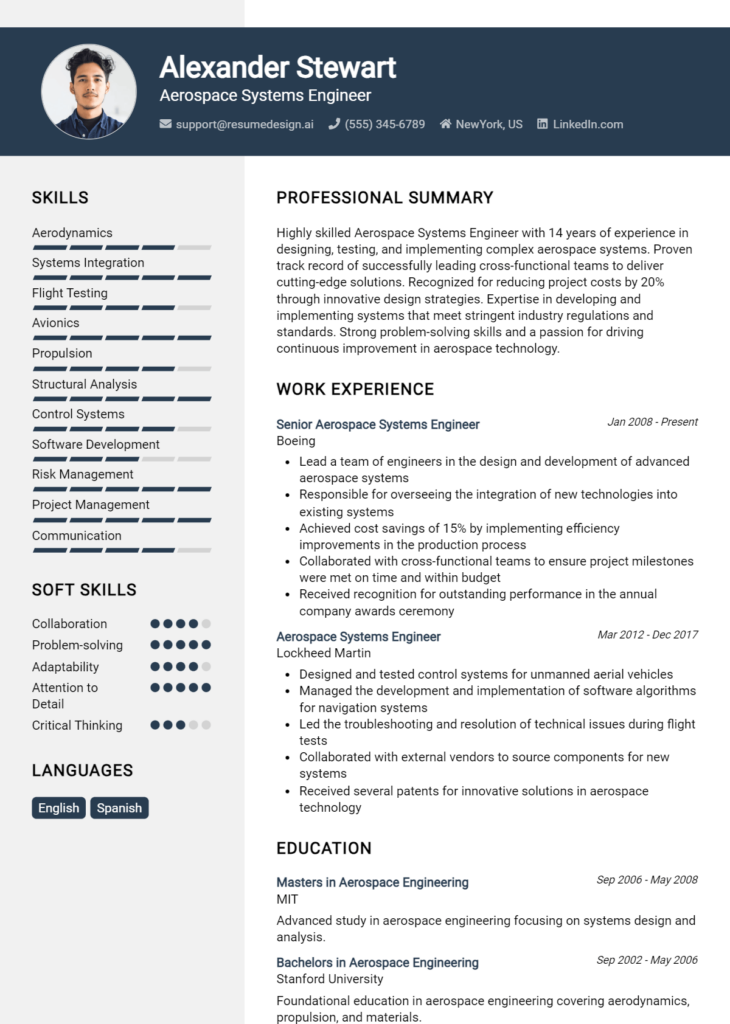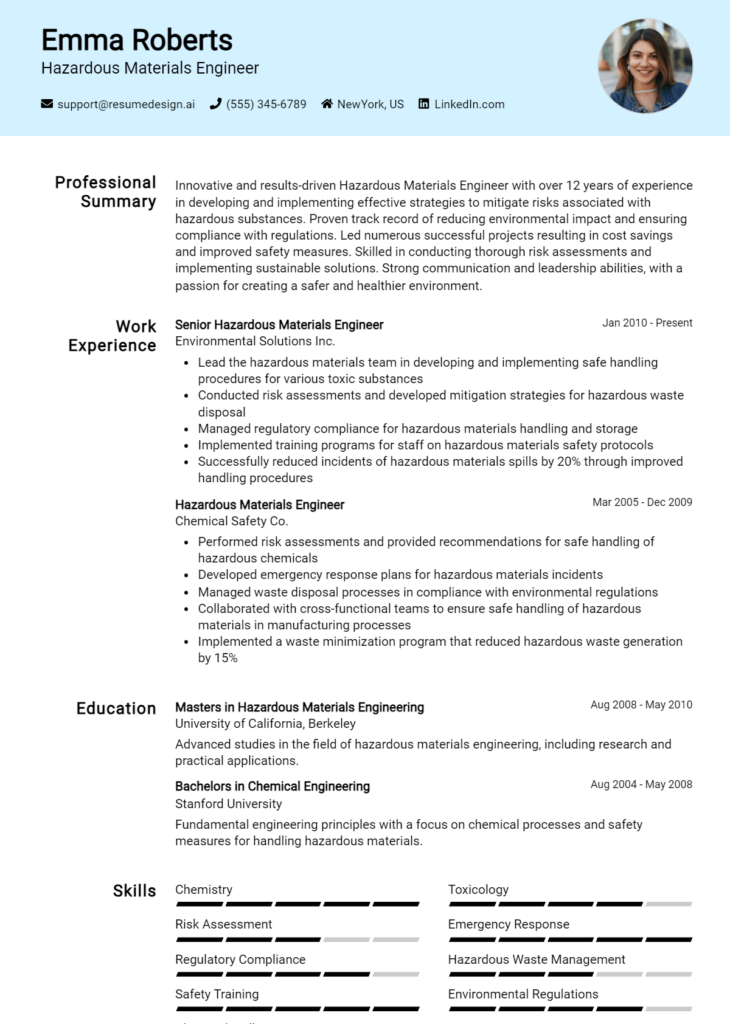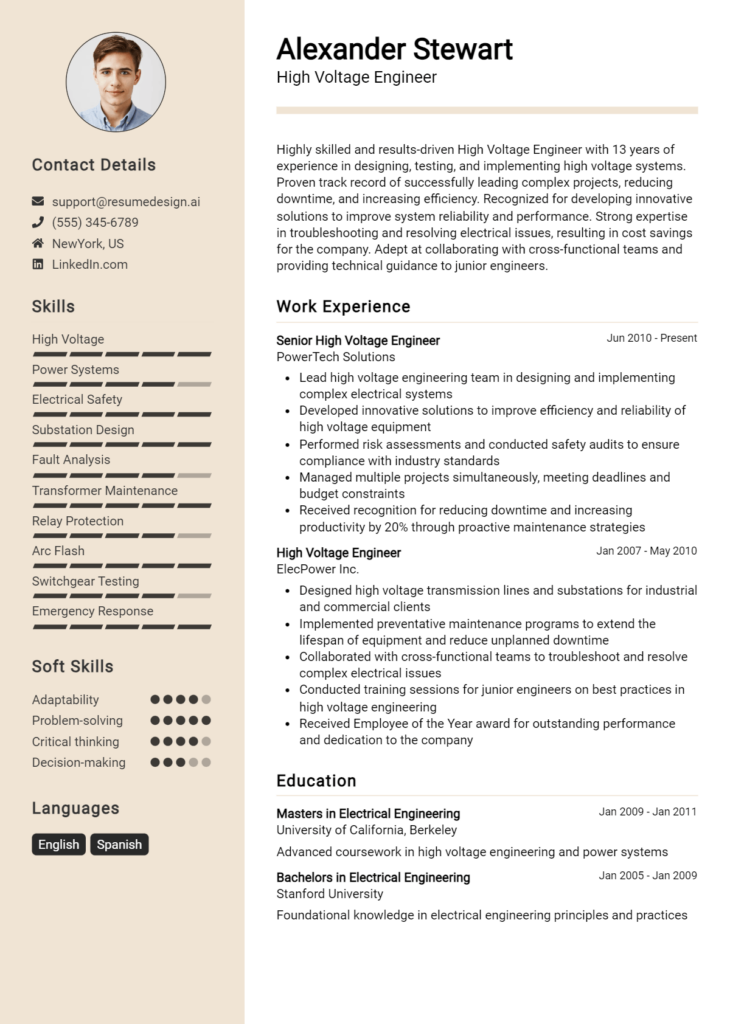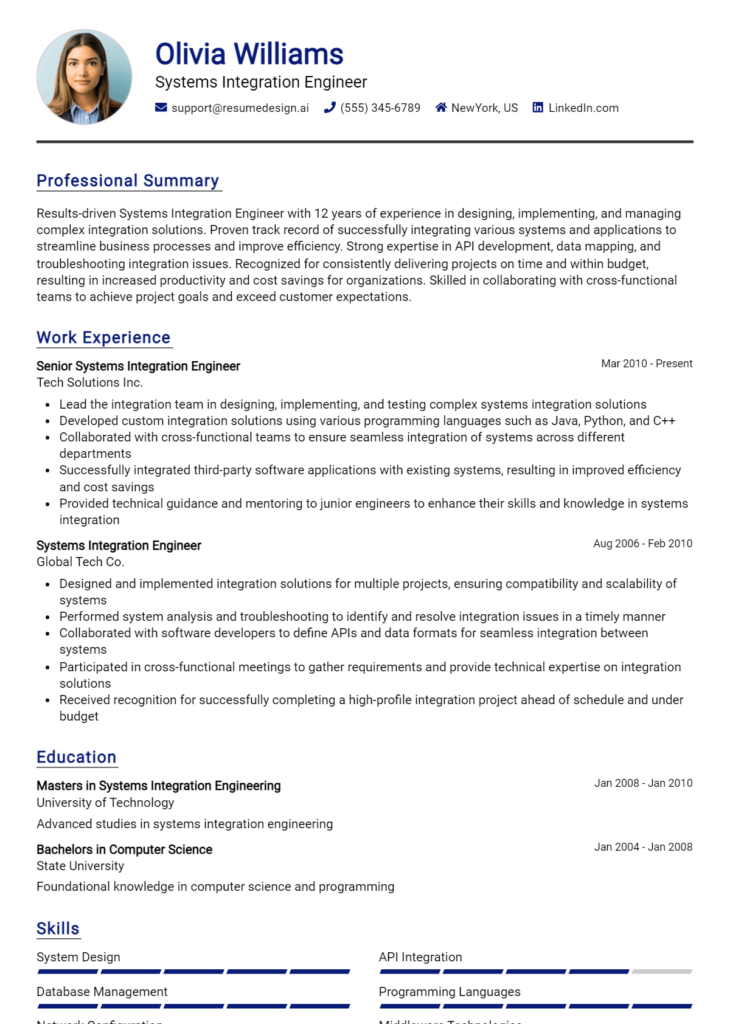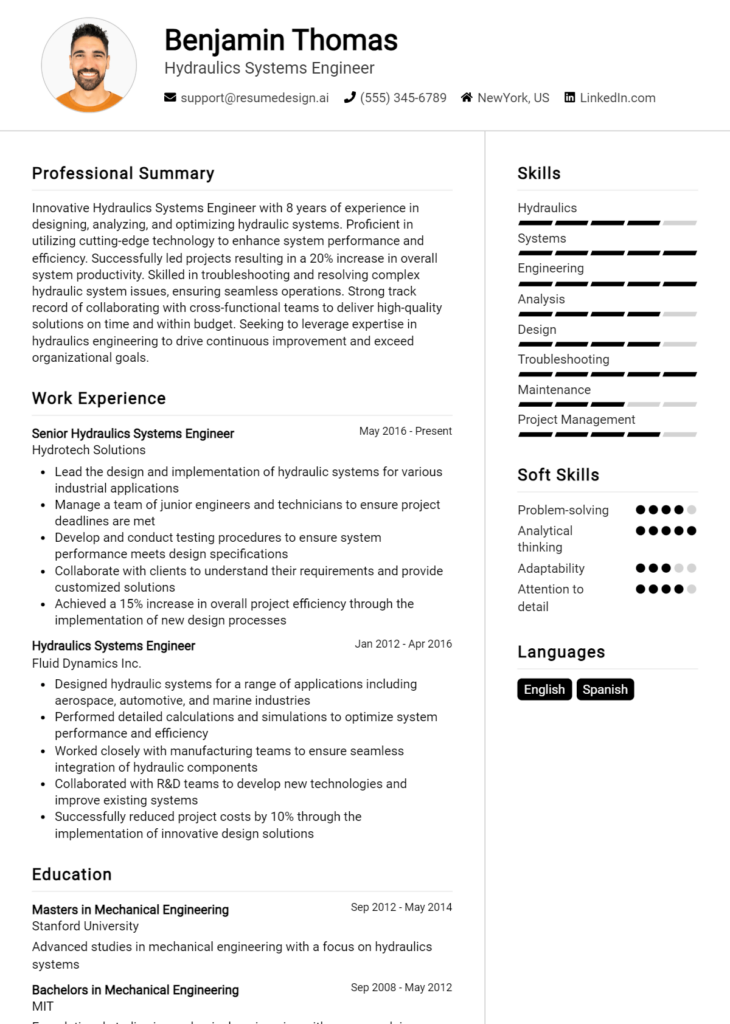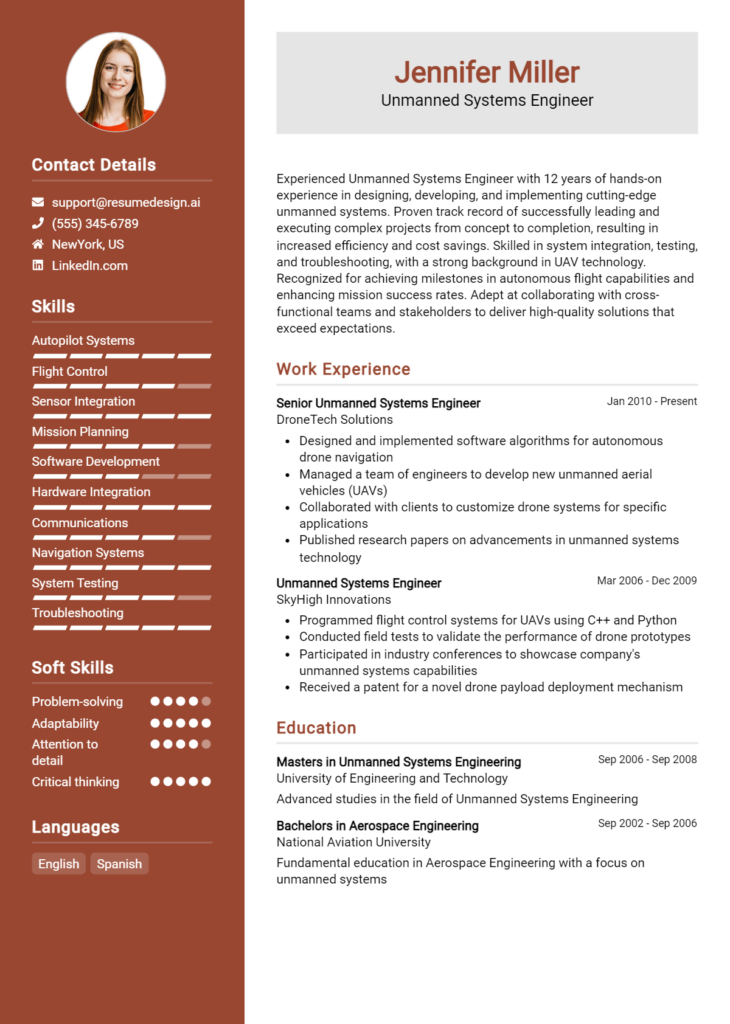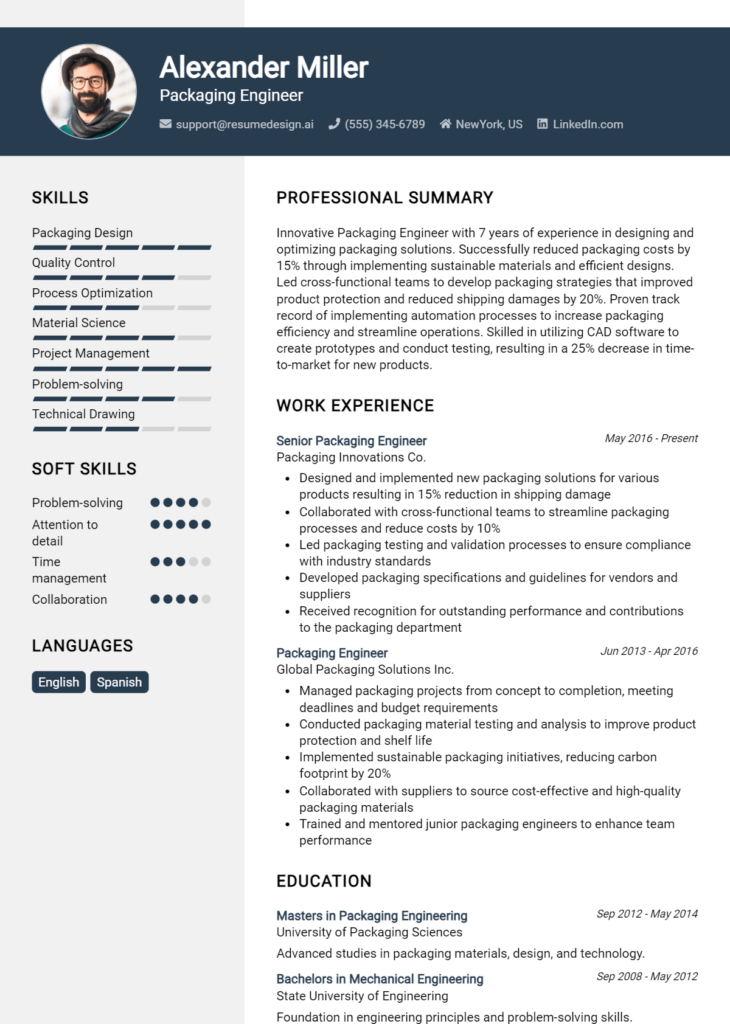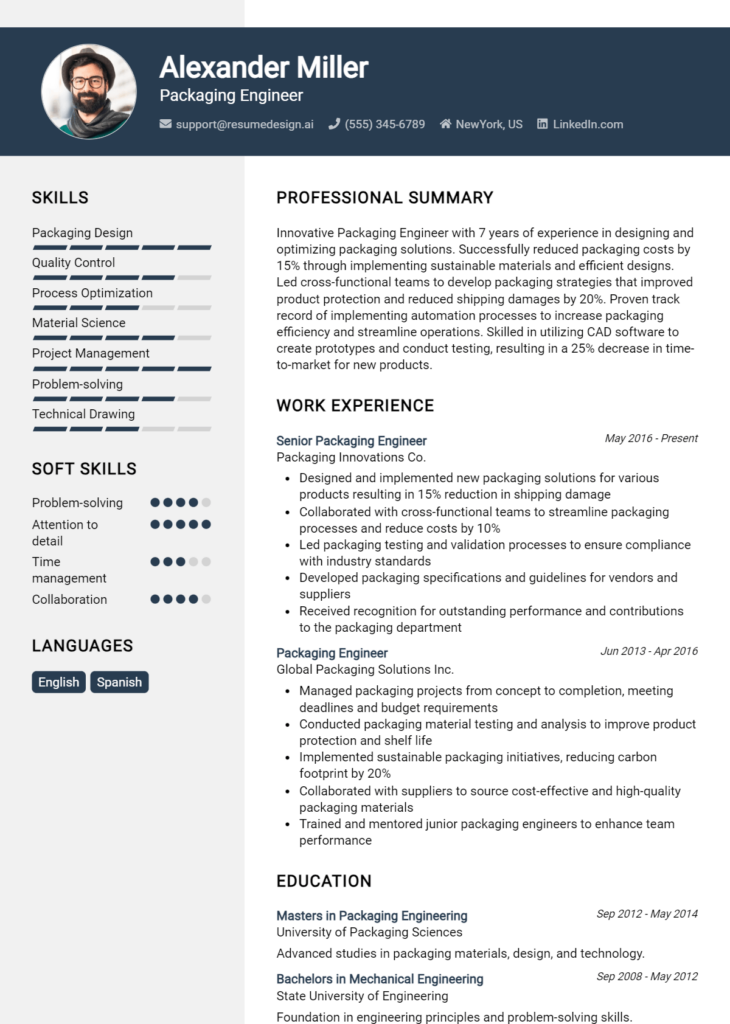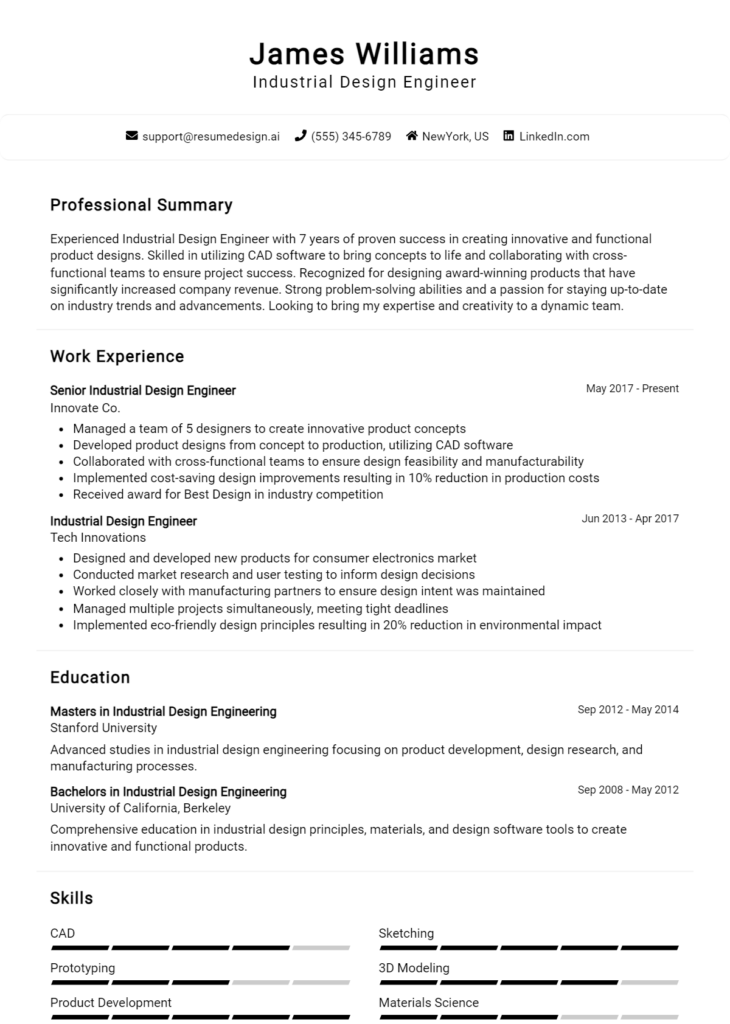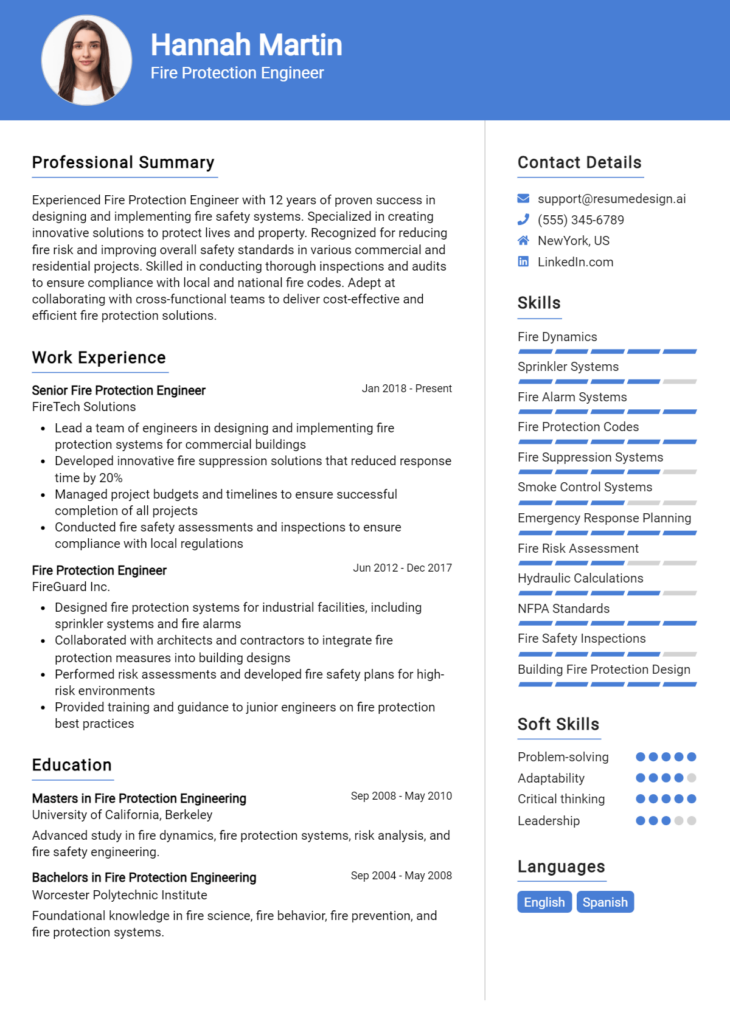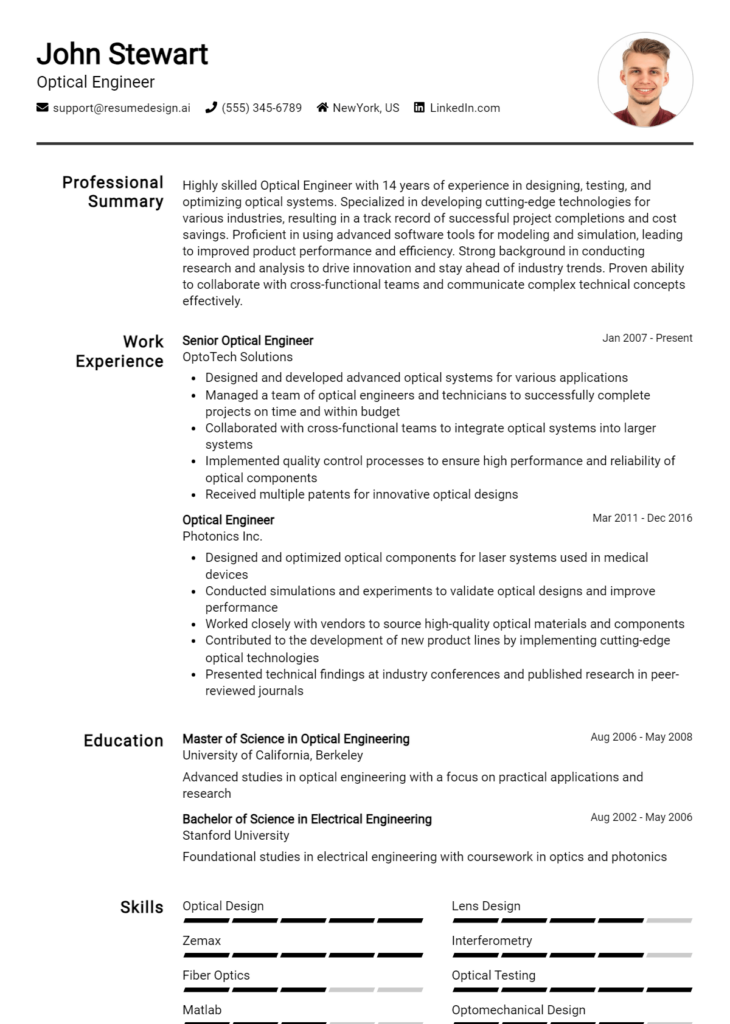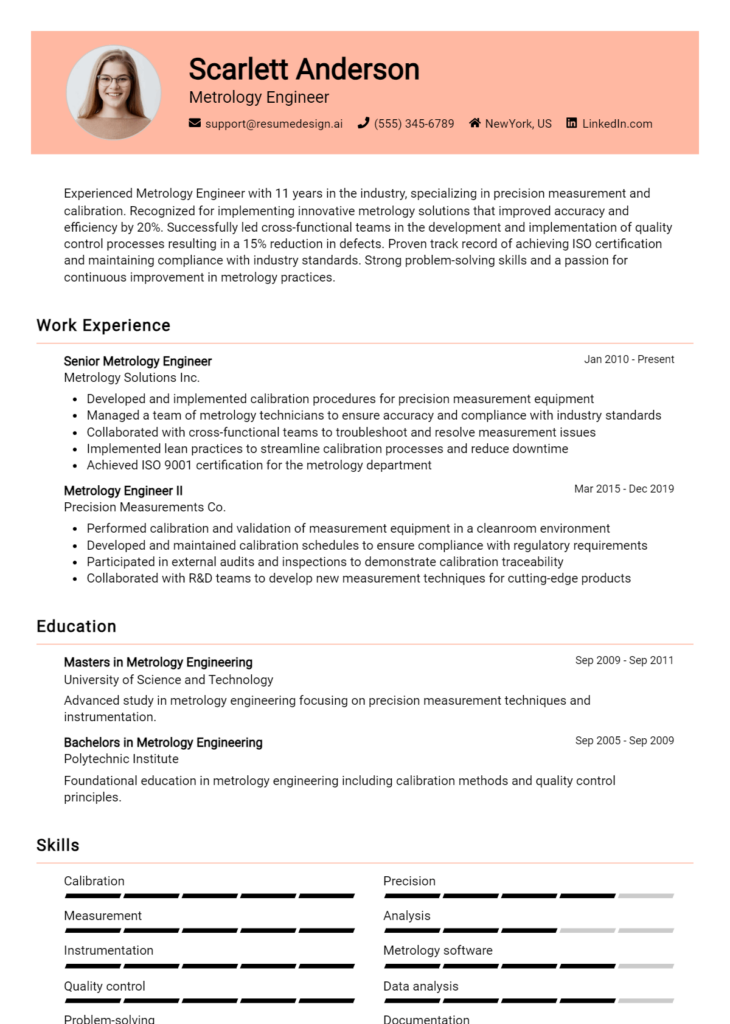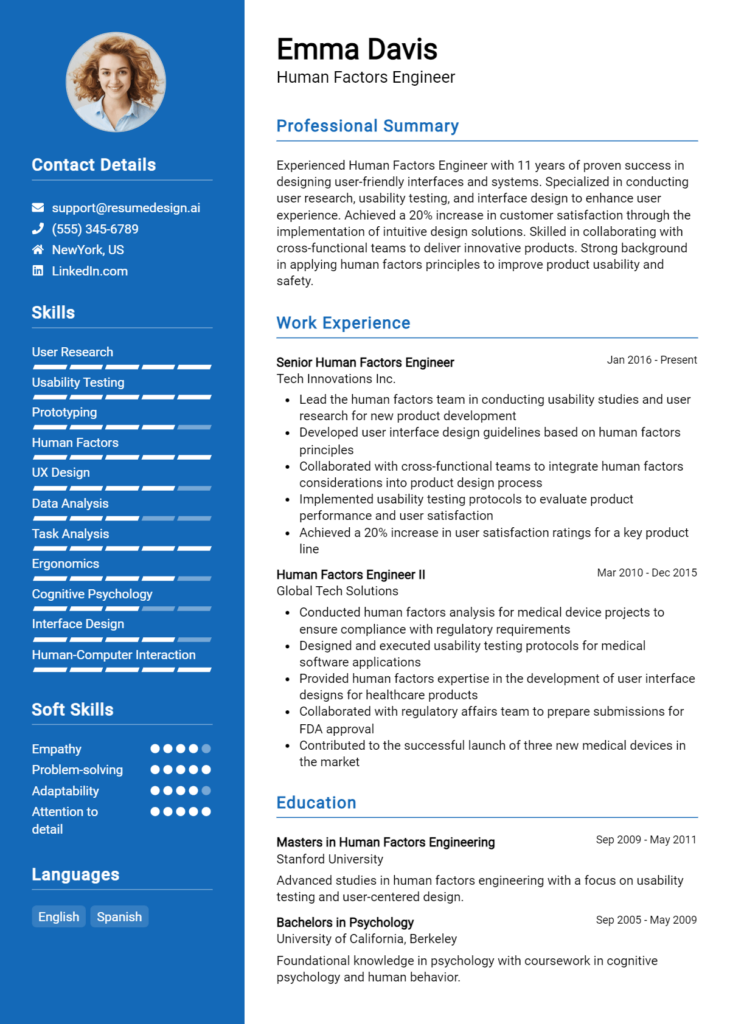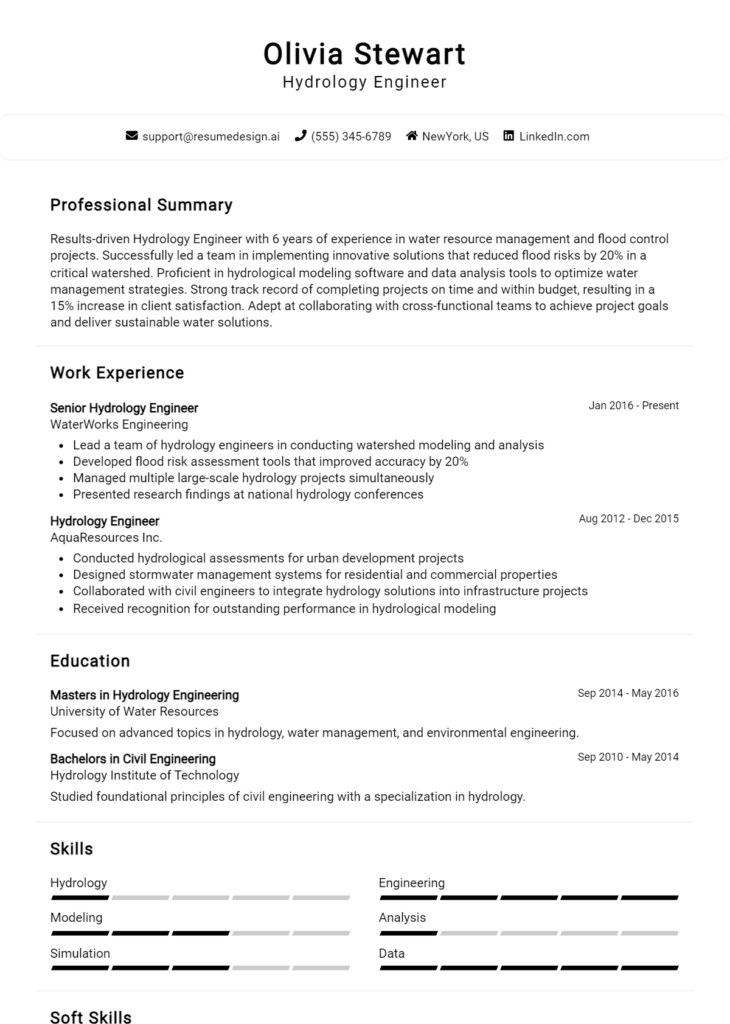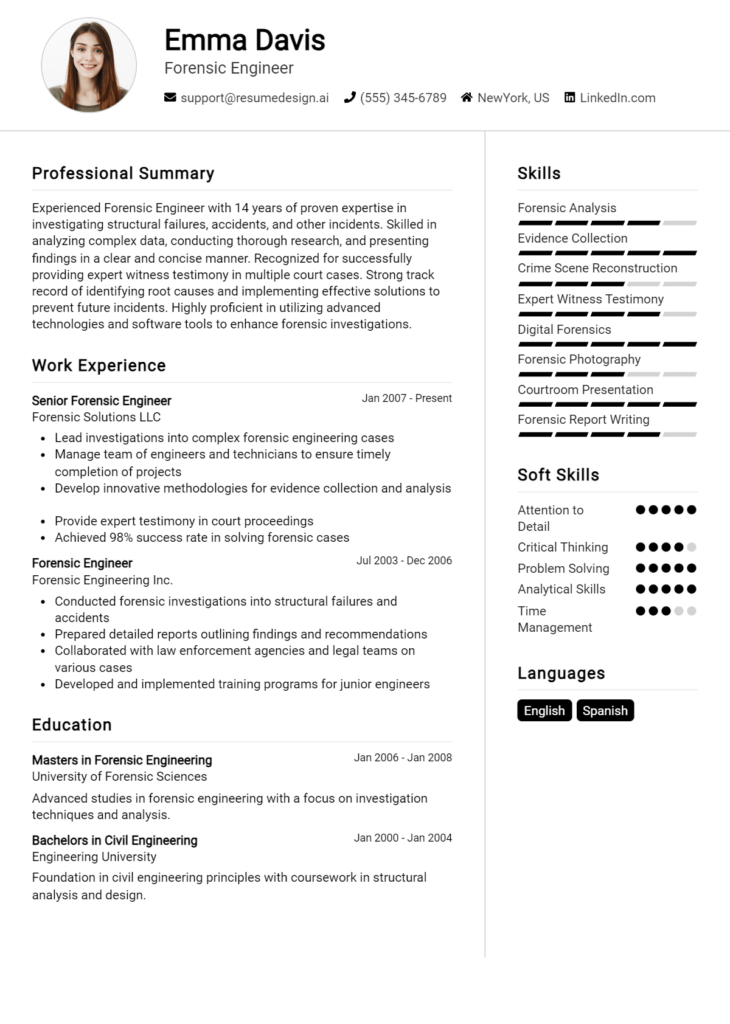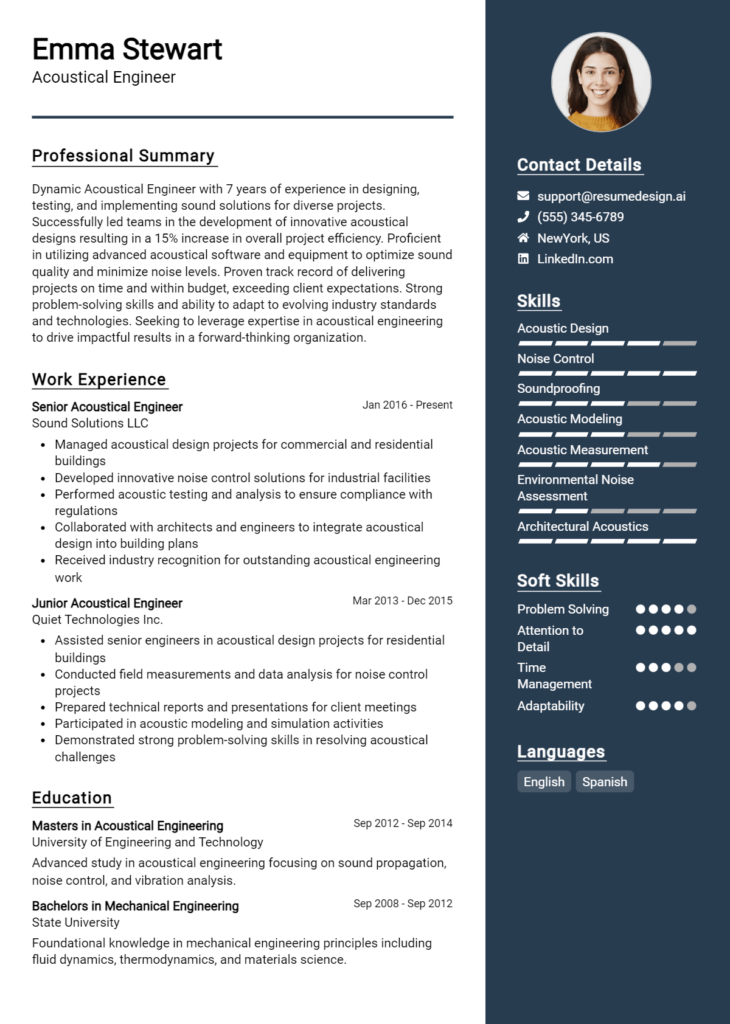Piping Engineer Core Responsibilities
A Piping Engineer plays a crucial role in designing, analyzing, and implementing piping systems across various industries. This position requires strong technical skills, operational expertise, and exceptional problem-solving abilities to ensure efficient collaboration between different departments, such as engineering, construction, and maintenance. A successful Piping Engineer contributes to the organization's goals by optimizing processes and ensuring safety and compliance. A well-structured resume highlighting these qualifications can effectively showcase a candidate's ability to bridge technical and operational functions.
Common Responsibilities Listed on Piping Engineer Resume
- Design and develop piping systems for various applications.
- Conduct stress analysis and ensure compliance with industry standards.
- Collaborate with cross-functional teams to ensure project alignment.
- Prepare technical specifications and documentation for piping projects.
- Oversee the installation and maintenance of piping systems.
- Conduct feasibility studies and cost estimates for projects.
- Perform inspections and troubleshoot piping issues.
- Implement safety protocols and ensure regulatory compliance.
- Utilize CAD software for system design and modification.
- Review and approve piping design calculations and drawings.
- Provide technical support during project execution and commissioning.
- Train and mentor junior engineering staff in piping design practices.
High-Level Resume Tips for Piping Engineer Professionals
In today’s competitive job market, a well-crafted resume is essential for Piping Engineer professionals looking to make a strong first impression on potential employers. Your resume serves as the initial introduction to your skills, experiences, and achievements, often determining whether you will be invited for an interview. It is crucial that this document not only reflects your technical capabilities but also showcases your accomplishments in a compelling way. This guide will provide practical and actionable resume tips specifically tailored for Piping Engineer professionals, helping you to stand out in your field.
Top Resume Tips for Piping Engineer Professionals
- Tailor your resume to match the job description, using keywords and phrases that align with the specific requirements of the position.
- Highlight relevant experience in piping design, installation, and maintenance, ensuring that the most pertinent roles are prominently featured.
- Quantify your achievements by including metrics such as project budgets, timelines, or efficiency improvements that demonstrate your impact.
- Showcase your knowledge of industry standards and regulations, such as ASME, ANSI, or API, to highlight your compliance expertise.
- Include any specialized skills, such as proficiency in software like AutoCAD, CAEPIPE, or PDMS, which are highly valued in the piping engineering field.
- Incorporate any relevant certifications, such as Certified Piping Engineer (CPE) or other professional qualifications that add credibility.
- Use action verbs to describe your responsibilities and contributions, emphasizing your proactive approach to problem-solving.
- Keep your resume clear and concise, ideally one page, focusing on the most important information that showcases your qualifications.
- Include a summary statement at the top of your resume that encapsulates your career achievements and professional goals.
- Proofread carefully to eliminate any errors or typos, as attention to detail is crucial in the engineering field.
By implementing these tips, you can significantly increase your chances of landing a job in the Piping Engineer field. A resume that effectively highlights your skills, achievements, and relevant experience will not only capture the attention of hiring managers but also position you as a strong candidate for the opportunities that align with your career aspirations.
Why Resume Headlines & Titles are Important for Piping Engineer
In the competitive field of piping engineering, resume headlines and titles play a crucial role in capturing the attention of hiring managers. A well-crafted headline can immediately summarize a candidate's key qualifications and areas of expertise in just a few impactful words. This concise statement serves as a powerful introduction, setting the tone for the rest of the resume. It should be relevant to the specific job being applied for, ensuring that it resonates with the employer’s needs and expectations. A strong headline not only highlights the candidate's strengths but also piques the interest of recruiters, increasing the likelihood of being shortlisted for an interview.
Best Practices for Crafting Resume Headlines for Piping Engineer
- Keep it concise: Aim for a headline that is no longer than one or two lines.
- Be role-specific: Tailor the headline to reflect the specific position of a piping engineer.
- Highlight key skills: Include critical skills or expertise relevant to piping engineering.
- Use industry-specific terminology: Incorporate technical language that resonates within the engineering field.
- Showcase achievements: Mention significant accomplishments that set you apart.
- Avoid generic phrases: Steer clear of vague terms that do not convey specific qualifications.
- Incorporate numbers when possible: Quantifiable achievements can strengthen your headline.
- Be impactful: Use strong action words that convey confidence and capability.
Example Resume Headlines for Piping Engineer
Strong Resume Headlines
Experienced Piping Engineer with 10+ years in Oil & Gas Project Management
Certified Piping Designer Specializing in ASME Code Compliance and Stress Analysis
Dynamic Piping Engineer with Proven Track Record in Reducing Project Costs by 15%
Weak Resume Headlines
Piping Engineer Looking for Work
Engineering Professional with Experience
Strong resume headlines are effective because they immediately convey relevant qualifications and highlight specific strengths that align with the job description. They provide a clear snapshot of what the candidate brings to the table, making it easy for hiring managers to see their value. In contrast, weak headlines fail to impress because they lack specificity and do not communicate the candidate's unique qualifications. Generic phrases do not stand out in a sea of resumes, making it difficult for candidates to grab the attention of potential employers.
Writing an Exceptional Piping Engineer Resume Summary
A well-crafted resume summary is crucial for a Piping Engineer as it serves as the first impression on hiring managers. This brief yet powerful statement provides a snapshot of your key skills, relevant experience, and notable accomplishments, all of which are essential in a competitive job market. A strong summary not only captures attention but also sets the tone for the rest of your resume, encouraging hiring managers to delve deeper into your qualifications. It should be concise, impactful, and tailored specifically to the job you're applying for, highlighting your expertise in piping systems, project management, and engineering principles.
Best Practices for Writing a Piping Engineer Resume Summary
- Quantify achievements: Use numbers and statistics to demonstrate the impact of your work.
- Focus on key skills: Highlight the technical skills that are most relevant to the job.
- Tailor the summary: Customize your summary to align with the specific job description.
- Use action verbs: Start sentences with strong action verbs to convey initiative and results.
- Be concise: Limit your summary to 3-5 sentences to maintain clarity and engagement.
- Showcase relevant experience: Mention specific projects or roles that directly relate to the position.
- Highlight certifications: Include any relevant certifications or licenses that enhance your qualifications.
- Convey passion: Express your enthusiasm for the field and the specific role you're applying to.
Example Piping Engineer Resume Summaries
Strong Resume Summaries
Results-driven Piping Engineer with over 8 years of experience in designing and implementing piping systems for large-scale industrial projects. Successfully led a team that improved system efficiency by 20%, reducing costs by $500,000 annually.
Detail-oriented Piping Engineer with expertise in both ASME and API standards, specializing in pipeline construction and maintenance. Proven track record of managing projects worth over $2 million, ensuring on-time and within-budget delivery.
Innovative Piping Engineer with a Master's degree in Mechanical Engineering and 5 years of experience in the oil and gas sector. Achieved a 15% reduction in project completion time through the implementation of streamlined design processes.
Weak Resume Summaries
Experienced engineer looking for a job in piping. I have worked on various projects and have some skills in the field.
Piping Engineer with a background in engineering and looking to contribute to a team. I am a hard worker and eager to learn.
The strong resume summaries stand out because they quantify achievements and provide specific details about the candidate's skills and experiences, making them directly relevant to the role of a Piping Engineer. In contrast, the weak summaries lack specificity, fail to quantify outcomes, and come across as generic, which diminishes their impact and effectiveness in capturing a hiring manager's attention.
Work Experience Section for Piping Engineer Resume
The work experience section of a Piping Engineer resume is critical as it serves as a comprehensive showcase of the candidate's technical skills, leadership capabilities, and commitment to delivering high-quality results. This section not only highlights the practical application of engineering principles but also reflects the ability to manage teams and collaborate effectively on complex projects. Quantifying achievements, such as savings in time or costs, and aligning experiences with industry standards are essential for demonstrating a candidate's value in the competitive engineering field.
Best Practices for Piping Engineer Work Experience
- Clearly outline technical skills relevant to piping engineering, including software proficiency and design methodologies.
- Quantify achievements with specific metrics, such as project completion times, budget adherence, or efficiency improvements.
- Highlight leadership roles and team management experiences to showcase your ability to guide projects and mentor colleagues.
- Include collaborative projects that demonstrate your ability to work cross-functionally with other engineering disciplines.
- Tailor your experience to align with industry standards and expectations, emphasizing relevant certifications and training.
- Use action verbs to convey your contributions and impact effectively.
- Focus on results-oriented statements that illustrate how your work benefited the organization.
- Maintain clarity and conciseness to ensure readability and engagement from potential employers.
Example Work Experiences for Piping Engineer
Strong Experiences
- Led a team of 10 engineers in designing a high-pressure piping system that reduced project costs by 15% and completed the project two months ahead of schedule.
- Implemented a new CAD software system that improved design accuracy and reduced drafting time by 30%, resulting in increased productivity and cost savings.
- Collaborated with cross-functional teams to develop a comprehensive piping layout for a petrochemical facility, which met all regulatory standards and enhanced operational efficiency by 20%.
Weak Experiences
- Worked on various piping projects.
- Assisted in the design of piping systems.
- Helped the team with project tasks.
The strong experiences are considered impactful because they provide specific, quantifiable outcomes that illustrate the candidate's contributions and leadership in significant projects. They highlight not only the technical expertise but also the ability to achieve measurable success. In contrast, the weak experiences lack detail and specificity, making them less compelling as they do not convey a clear understanding of the candidate's role or achievements within the projects.
Education and Certifications Section for Piping Engineer Resume
The education and certifications section of a Piping Engineer resume plays a crucial role in establishing a candidate's qualifications and expertise in the field. This section not only showcases the academic background but also highlights industry-relevant certifications and ongoing learning efforts that are essential in a rapidly evolving engineering landscape. By providing relevant coursework, recognized certifications, and specialized training, candidates can significantly enhance their credibility and demonstrate their alignment with the job role, making them more attractive to potential employers.
Best Practices for Piping Engineer Education and Certifications
- Prioritize relevant degrees in engineering, particularly in mechanical or civil engineering.
- Include certifications from reputable organizations, such as Certified Welding Inspector (CWI) or ASME certifications.
- Detail specific coursework that directly applies to piping design, materials, and stress analysis.
- Highlight any specialized training or workshops related to piping technology and project management.
- Use clear and professional formatting for easy readability and quick reference.
- Update the section regularly to reflect new qualifications and ongoing education.
- Consider including GPA or honors for recent graduates to demonstrate academic excellence.
- Show case any memberships in professional organizations like the American Society of Mechanical Engineers (ASME).
Example Education and Certifications for Piping Engineer
Strong Examples
- Bachelor of Science in Mechanical Engineering, University of XYZ, Graduated May 2021
- Certified Welding Inspector (CWI), American Welding Society, Cert. No. 1234567
- Advanced Piping Design and Engineering, Professional Development Course, ABC Institute, Completed July 2022
- Coursework: Fluid Mechanics, Thermodynamics, and Piping Systems Analysis
Weak Examples
- Associate Degree in General Studies, Community College, Graduated May 2018
- Certification in Basic Plumbing (non-industry recognized), Completed 2019
- Coursework: Introduction to Business, Psychology, and Art History
- High School Diploma, Graduated 2017
The strong examples are considered effective as they directly relate to the skills and knowledge required for a Piping Engineer role, showcasing relevant degrees, industry-recognized certifications, and specific coursework that aligns with job responsibilities. In contrast, the weak examples lack relevance to the field of piping engineering, featuring outdated or non-industry-recognized qualifications that do not demonstrate the candidate's technical expertise or commitment to professional development.
Top Skills & Keywords for Piping Engineer Resume
A well-crafted resume is essential for a Piping Engineer, as it showcases not only your technical expertise but also the soft skills that enhance your ability to work in a team and solve complex problems. Highlighting the right mix of skills can significantly improve your chances of landing an interview. Employers look for candidates who possess a blend of both hard and soft skills, ensuring they can effectively design, analyze, and implement piping systems while collaborating with diverse teams. By emphasizing these skills in your resume, you can demonstrate your qualifications and readiness for the challenges of the role.
Top Hard & Soft Skills for Piping Engineer
Soft Skills
- Effective communication
- Team collaboration
- Problem-solving
- Time management
- Attention to detail
- Critical thinking
- Adaptability
- Conflict resolution
- Project management
- Negotiation skills
Hard Skills
- Piping design and layout
- CAD software proficiency (e.g., AutoCAD, SolidWorks)
- Knowledge of ASME codes and standards
- Stress analysis and pipe support design
- Material selection and specification
- Pipeline construction and installation
- Understanding of fluid dynamics
- Knowledge of fabrication processes
- Proficiency in 3D modeling software
- Familiarity with project lifecycle management
For more information on enhancing your resume with relevant skills and presenting your work experience, consider exploring additional resources to optimize your application.
Stand Out with a Winning Piping Engineer Cover Letter
Dear Hiring Manager,
I am writing to express my enthusiasm for the Piping Engineer position at [Company Name], as advertised on [where you found the job posting]. With a Bachelor’s degree in Mechanical Engineering and over [X years] of hands-on experience in the oil and gas industry, I am confident in my ability to contribute effectively to your team and support your projects’ success. My background in designing, analyzing, and troubleshooting piping systems has equipped me with the technical skills and knowledge necessary to excel in this role.
In my previous role at [Previous Company Name], I successfully led a team to develop innovative piping designs that not only met project specifications but also adhered to safety and environmental standards. My experience includes proficiency in using industry-standard software such as AutoCAD and CAESAR II for modeling and analysis, as well as conducting stress analysis and material selection to ensure the integrity and reliability of the systems I design. I take pride in my ability to collaborate with multidisciplinary teams to troubleshoot issues and optimize system performance, which I believe aligns well with the collaborative culture at [Company Name].
Furthermore, my commitment to continuous learning and professional development has kept me abreast of the latest industry trends and technologies. I have actively participated in training sessions and workshops that have enhanced my skills in project management and effective communication. I am eager to bring my expertise in piping engineering to [Company Name] and contribute to your ongoing commitment to excellence and innovation in engineering.
Thank you for considering my application. I look forward to the opportunity to discuss how my experience and vision align with the goals of [Company Name]. I am excited about the possibility of contributing to your team and am available for an interview at your earliest convenience.
Sincerely,
[Your Name]
[Your Phone Number]
[Your Email Address]
Common Mistakes to Avoid in a Piping Engineer Resume
When applying for a Piping Engineer position, it's essential to present a polished and professional resume that reflects your skills, experiences, and qualifications. However, many candidates make common mistakes that can hinder their chances of landing an interview. Avoiding these pitfalls can significantly enhance your resume's effectiveness. Here are some common mistakes to steer clear of:
Generic Objective Statements: Using a vague or generic objective statement fails to capture the employer's attention. Tailor your objective to reflect your specific career goals and how they align with the company's mission.
Lack of Relevant Keywords: Many employers use applicant tracking systems (ATS) to screen resumes. Failing to include industry-specific keywords can lead to your resume being overlooked. Research the job description and incorporate relevant terms.
Inadequate Detail on Projects: Simply listing past job titles and employers without detailing specific projects can undermine your qualifications. Include information about the complexities of the projects you worked on, your role, and the technologies used.
Ignoring Achievements: Focusing solely on job responsibilities instead of highlighting achievements can make your resume less impactful. Quantify your accomplishments with metrics, such as cost savings or project completion times.
Poor Formatting: A cluttered or unprofessional format can distract from your qualifications. Use clear headings, bullet points, and consistent fonts to ensure your resume is easy to read and visually appealing.
Overly Lengthy Resume: Lengthy resumes can overwhelm hiring managers. Aim for a concise format, ideally no longer than one or two pages, focusing on the most relevant experiences and skills.
Neglecting Soft Skills: While technical skills are crucial for a Piping Engineer, soft skills like teamwork, communication, and problem-solving are equally important. Highlight these skills to demonstrate your ability to work effectively in a team environment.
Typos and Grammatical Errors: Errors in spelling and grammar can create a negative impression and suggest a lack of attention to detail. Thoroughly proofread your resume or consider having someone else review it to catch any mistakes.
Conclusion
As a Piping Engineer, your role is crucial in the design, installation, and maintenance of piping systems in various industries. This article has highlighted essential skills such as technical expertise, project management, and an understanding of industry standards and safety regulations. Additionally, it emphasized the importance of effective communication and teamwork in ensuring that projects are completed successfully and on time.
In conclusion, it’s vital to present your qualifications and experiences effectively through your resume. A well-crafted resume can set you apart in a competitive job market. We encourage you to take the time to review and update your Piping Engineer resume to reflect your skills and accomplishments accurately.
To assist you in this process, consider utilizing the following resources:
- Explore resume templates to find a design that suits your professional style.
- Use the resume builder for a user-friendly experience in crafting your resume.
- Check out resume examples for inspiration and guidance on formatting and content.
- Don’t forget to enhance your application with a compelling cover letter using our cover letter templates.
Take action today to ensure your resume reflects your expertise as a Piping Engineer and helps you secure your next opportunity!

